
The world’s biggest debate tournament has been embroiled in a row over censorship after it hosted a debate on Hong Kong democracy but later removed all online traces of the match.
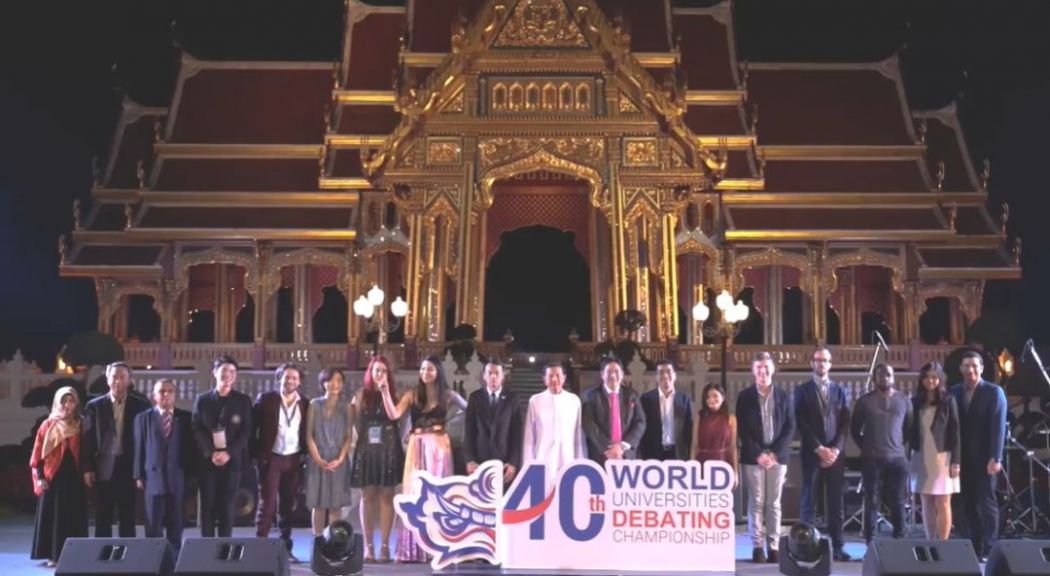
Last Friday, four top teams debated the motion “This House, as China, would grant universal suffrage to Hong Kong citizens” during the grand finals of the World Universities Debating Championship’s (WUDC) open category. The event was held at Assumption University in Bangkok, Thailand and drew over 240 participating universities from 50 different countries.
The motion was divisive among attendees and some Chinese spectators walked out part-way through. It was unclear whether they left voluntarily, or were told to leave.
“The debate started out pretty well…[then] I saw a bunch of people who are ethnically Chinese getting up and leaving,” a Hong Kong debater who witnessed the final told HKFP. “A whole row of people got up.”
The match was livestreamed on the competition’s official Facebook page, though viewers said it was halted mid-stream and the post later deleted. The motion was also removed from the contest’s official website.
While some of us were resting, eating too much Christmas pudding or catching up on pleasure reading, @UniofOxford Trinity finalist Chin Lee was winning the World Universities Debating Championship! Huge congratulations Chin!!! #wudc https://t.co/9mBLzhHTlq pic.twitter.com/jWlyqn0WY7
— Trinity College (@TrinityOxford) January 8, 2020
WUDC organisers also anonymised the names of all Chinese and Hong Kong debaters and adjudicators on the results page, which would normally be accessible to the public. Some participants also requested their names be removed – including the two Oxford University champions.
In a public statement, the WUDC Equity Team said that “there was no involvement or pressure from any national body, embassy or official to ‘make the finals go away.’” It also urged people not to ask for more information, so as to avoid intruding into the “privacy and welfare” of the relevant parties.
The Equity Team – which was responsible for the competition’s code of conduct and resolving complaints – said that the livestream was removed because grand final competitors did not consent to appear on camera.
“This was true of most speakers in the round, and was communicated to the organising committee just before the round. However, due to language barriers and some miscommunication, the livestream continued to happen,” the statement read. “Once we found out, we decided to remove the video, [because] preserving what remained of speeches that were consented to would have been simply of little value to the community at large.”
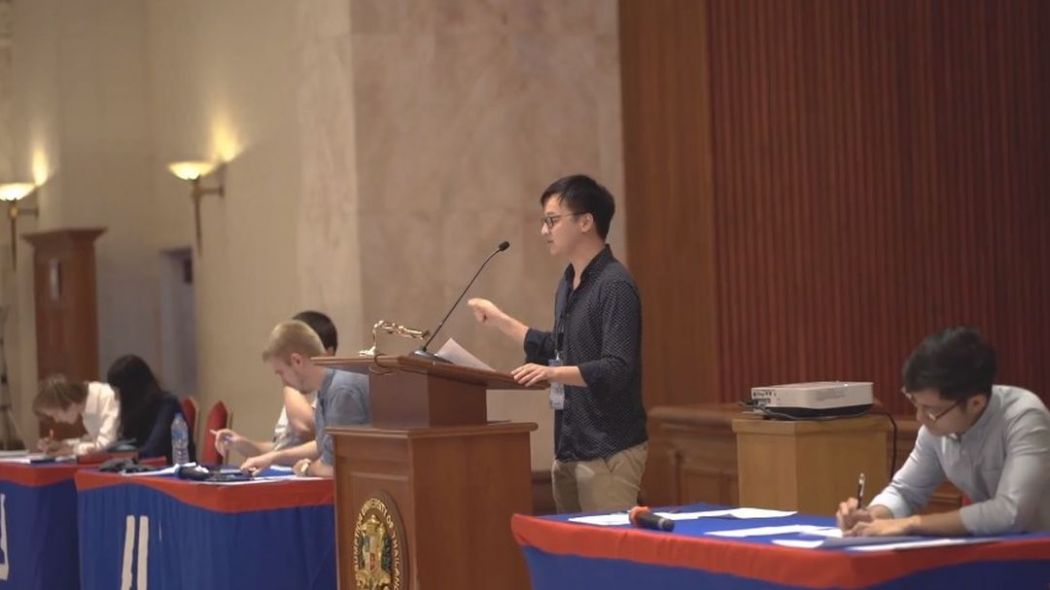
The Equity Team also decided to proactively allow debaters to redact their names from the results page after they were “made acutely aware of how speakers in the final and some other members of the community felt.”
The statement did not disclose whether the Equity Team received any complaints about the motion, and HKFP has contacted them for further comment.
Alleged Chinese pressure
Speaking to HKFP on condition of anonymity, the Hong Kong debater said that one of her teammates was part of the group that walked out of the grand final. Towards the end of the match, she discovered that the group was no longer at the competition venue.
“One of our teammates, who was a mainland student, had disappeared. We were all trying to look for him,” she said. “Then we received a message that said, he got on a bus to go back to the hotel, and that all the other mainland students had left as well.”
Her teammate refused to tell her if he was coerced into leaving and later rejoined the team for dinner, she said.

As the results were announced at dinner, the Hong Kong participant said that she was “surprised and upset” to learn that organisers redacted the names of Chinese and Hong Kong contenders – as a debater’s international ranking is often seen as a badge of honour.
“One of the Hong Kong debaters approached the [organisers] and they said they had done so as a precautionary measure,” she said.
Most of the anonymised teams – given labels such as Candle, Briefcase and Hamburger – were labelled as belonging to the English as a Second Language (ESL) and English as a Foreign Language (EFL) categories.
A senior figure in the Chinese debating community, also speaking to HKFP on condition of anonymity, said he was not aware of any organised attempt to pressure Chinese attendees to walk out: “Quite a number of Chinese stayed till the end,” he said, adding that he didn’t know of any intervention by Chinese officials.
Citing second-hand accounts, he said that one of the Chinese teams at WUDC reported the Hong Kong motion to a senior teacher and “asked if it was fine.” He added: “The response they got from the senior teacher who was not in Bangkok seems to be ‘It is okay, no worries.’”
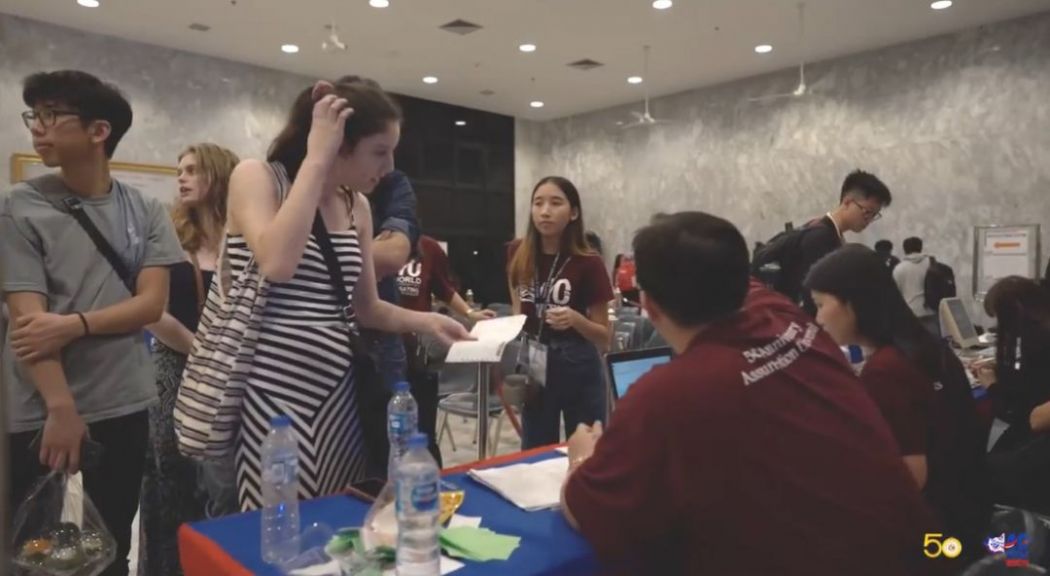
As for the redaction of names, he said a request was filed to the Equity Team to ensure that Chinese participants would be able to attend future WUDCs.
Several Chinese debaters and adjudicators turned down HKFP’s requests for comment, with one saying that he was not given permission to speak to the press. Another told HKFP that turning the media spotlight on the issue may “cause trouble” for people in China – though it was unclear what the expected backlash would be.
The senior Chinese figure acknowledged that there was a “fear of trouble” among the Chinese debating circuit, but he was unsure if threats of backlash were real: “If there is ever any backlash, it is more likely that leftist university officials would reduce or cut support to debating, due to the fear of trouble,” he said. “Even so, apparently not all university officials are left.”
Censorship fears
In university-level debate tournaments, motions are usually set by an “adjudication core” made up of experienced and respected debaters. However, motions for competitions held in China had long been subject to external vetting.
Samuel Chan, a former ESL Champion at WUDC from Hong Kong, said that some motions would be instantly vetoed in China, sometimes by teachers who may not be familiar with the debating world: “In the past, the red line is Tibet, Taiwan and Xinjiang – now I suppose we can add Hong Kong to the list,” Chan told HKFP.
He said he had seen plenty of examples of self-censorship during his time competing and teaching in China, including at the 2015 Northeast Asia Open (NEAO) in Beijing where he served as part of the adjudication core.
According to Chan, the 2015 tournament was interrupted after a Chinese debater called the Public Security Bureau after losing a match on Taiwan independence. “She was very angry and reported us to the Public Security Bureau, and said that we were subverting China,” Chan said.
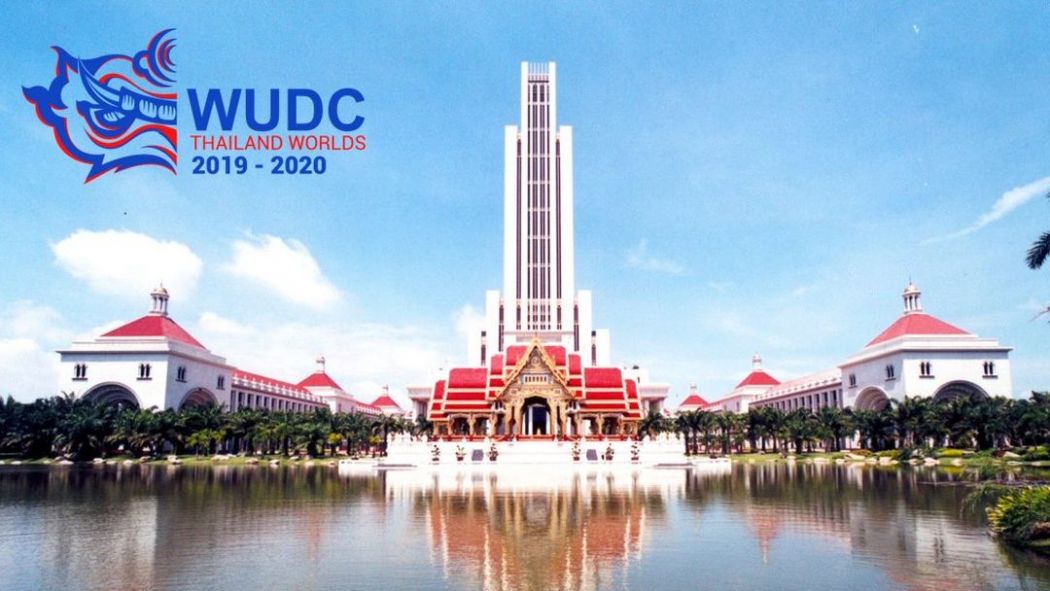
“That night, she said that her safety was threatened and public security agents surrounded the whole hotel. The next morning, they surrounded the competition venue as well and took us in for questioning.”
Afterwards, the school did not want to continue hosting the tournament and some Chinese teams quit, Chan added. The adjudication core “wriggled out” of questioning by the Chinese authorities, and conducted the remaining rounds at the hotel.
Chan said that, sometimes, action may be taken out of self-censorship and fear of repercussions, rather than any official suppression. “Most of the time it’s not top-down, it’s the xiaofenhong reporting it up,” he said, referring to the nickname of young pro-Beijing radicals.
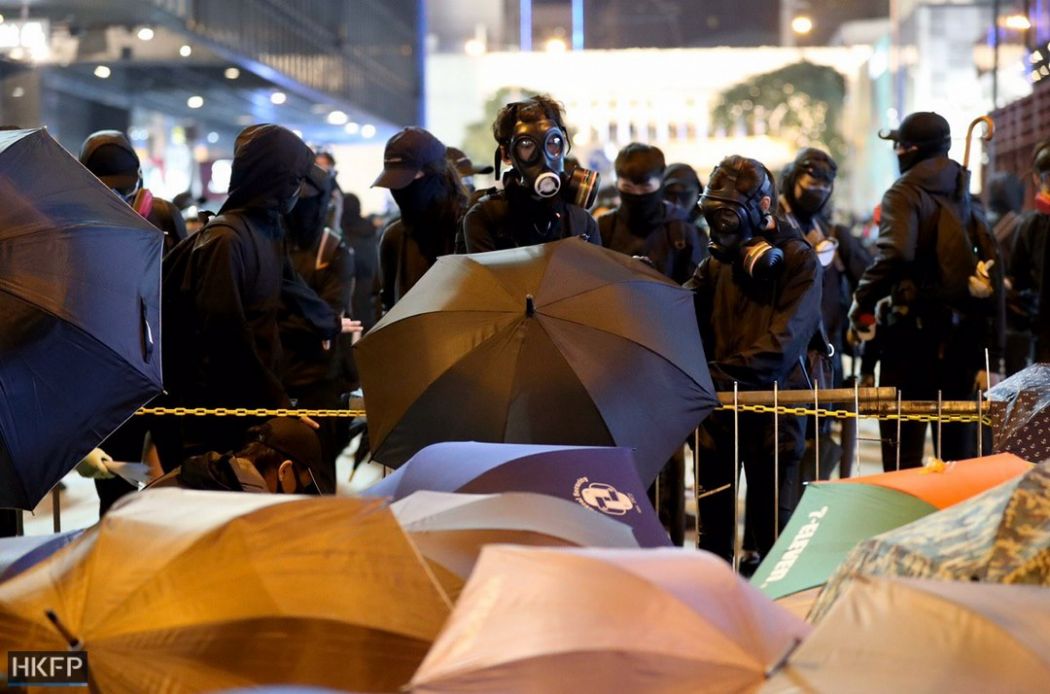
Removing traces of the recent Hong Kong protests from the 2020 WUDC has raised new fears of the Chinese government exerting influence abroad. Chan told HKFP that it was “saddening and unfortunate” that debaters had to compromise their ideals during a debate tournament.
He said that it was entirely appropriate for the adjudication core to pick Hong Kong as a motion, and there are many ways for the topic to be addressed: “The [Hong Kong motion] embodied the spirit of the tournament, which is that you want to find a highly controversial topic, and have intellectuals debate it on the world stage.”
However, the redaction proved that the Chinese Communist Party had extended its influence to make people self-censor, Chan said: “Even for a group of so-called elites debating Hong Kong in a relatively safe environment, they still have this fear.”
“This shows how the values of the free world are eroding, and no point of our discourse is safe – even if you are outside of China. Unfortunately, I believe that this proves a debate tournament cannot be divorced from geopolitical reality.”
Additional reporting: Kris Cheng.
Hong Kong Free Press relies on direct reader support. Help safeguard independent journalism and press freedom as we invest more in freelancers, overtime, safety gear & insurance during this summer’s protests. 10 ways to support us.

